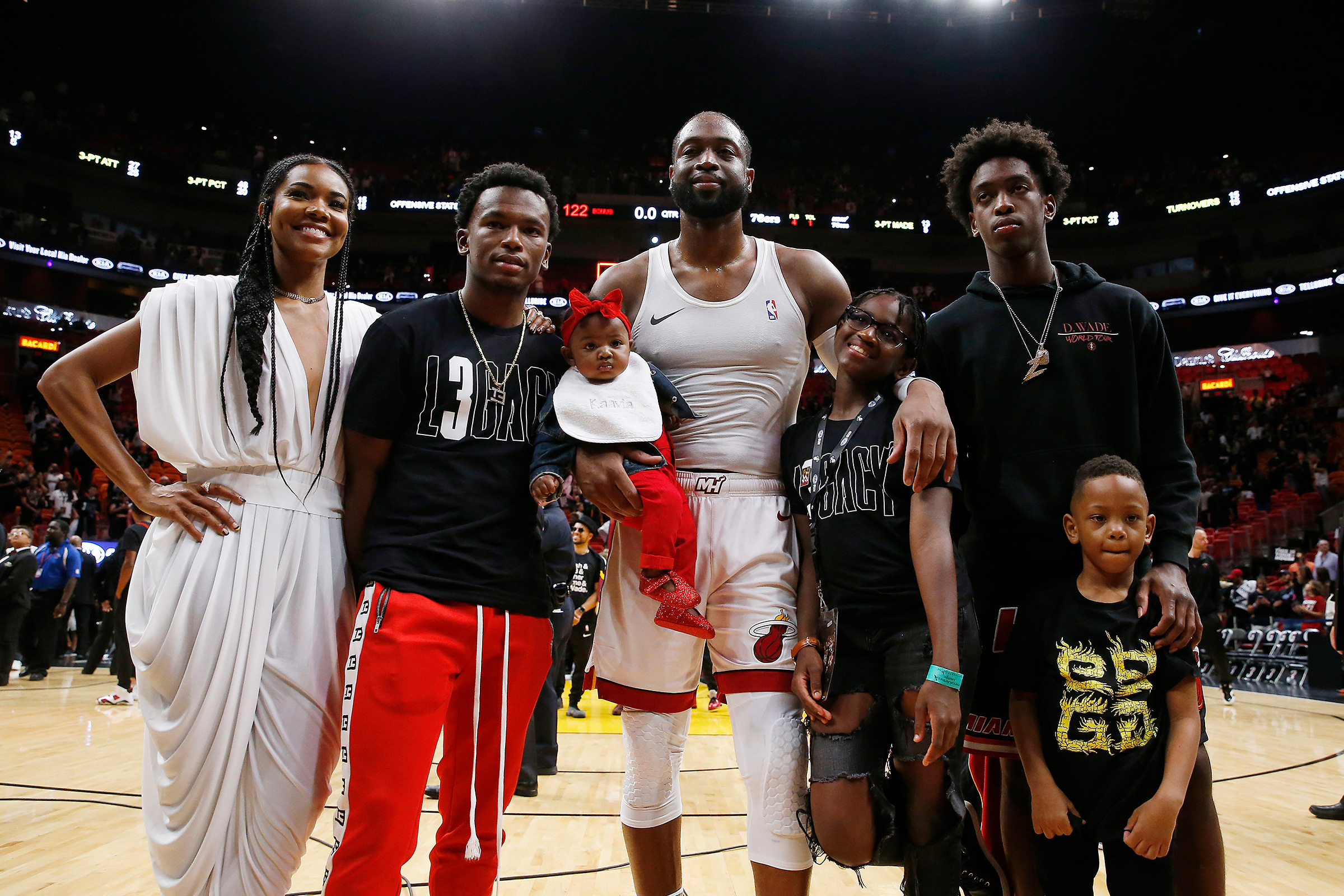
There’s an old-school mentality for parents, especially if you play basketball, that when your son is born, he’s going to follow in your footsteps. Zaire, who’s now 18 and a key player for one of the best high school teams in the country, quickly met that expectation.
When Zaya was born, we thought the same thing: let’s give her a ball and see if she’s into it. But ever since she was about 3, we realized she wasn’t. This summer, she told us she wanted to use she/her pronouns and that she wanted to go by Zaya. Zion was now her “dead name” and should no longer be used.
We projected our fears onto her. As black people, we know what we’re facing. When you’ve seen the devil up close and you’ve seen what evil lurks out there, your instinct is to just say, “Turn into me and you’ll be O.K. I’ve made it this far.” But we’re robbing our children of their identities and their most authentic selves. Sometimes the fiercest fight is against the person in the mirror and how you were raised.
We didn’t change overnight—we weren’t immediately the perfect allies. We were assimilated into gender roles that we’d been ascribed. There were learning curves. Zaya, now 12, once asked us, “Do you know there’s a difference between gender expression, identity and sexuality?”
We were like, “Yep!” And the second she walked away, we said, “O.K., let’s break out the Google.” We had to shut up and listen and ask so many questions and talk to health care professionals. We reached out to black trans activists, advocates, educators, and watched shows and documentaries like Pose, Euphoria and The Death and Life of Marsha P. Johnson. Zaya had to educate us. She has always led. At times, we’ve had to catch up.
There are lots of things we still argue about, like what it is to be a “lady.” Are we trying to teach Zaya a very specific and “traditional” way of performing “femininity,” like shaving your legs and armpits? How many things that we do are rooted in misogyny, sexism and forcing women into these boxes?
Zaya’s identity may fly in the face of our faith or our upbringing—a lot of parents have this mentality of “this is how it has to be”—but honestly, that thinking is messing our kids up. The transgender suicide rate is very high. It’s our job, when our children come home and tell us who they truly are, to go out and find the very best ways to help them embrace that. When Zaire got his driver’s license and wanted to drive, we had to explain to him what it means to be a black man in America and how his interaction with the police may be different because of that. When any of our children show us who they are in life, we make sure we give them the best—and we approach Zaya’s identity in the same way.
Social media has been difficult. She’s in junior high, and those years are so critical and can be brutal. But for a lot of LGBTQ+ kids, it’s their only lifeline to their community. We’re trying to figure out that balance of not taking away her community but also protecting her from being inundated with negativity and ignorance.
We were both surprised, and encouraged, by how many people in our lives changed their traditional views on gender and identity. When we were clear with our loved ones that, in the same way we’re not going to be friends with people who assault their children or use racist language, we were not going to accept any discrimination or abuse toward the LGBTQ+ community, it really wasn’t that difficult for them. We didn’t lose anybody. We gained a lot more educated, curious people who started their own inner dialogue.
The biggest lesson we can offer is: listen to your child. Do you actually know your child, or are you just committed to forcing your child to conform to these impossible standards? You can’t one-size-fits-all your parenting. A lot of people are now wondering who they could have been, had their parents supported who they are.
Identity isn’t a desire or a wish: it’s more a matter of our understanding and making the necessary adjustments to ensure someone is celebrated for being their authentic and true selves. We love our child and would do anything to make sure she has the best possibilities to succeed in life, to have happiness and joy. We see that in Zaya. We see joy in her. And that makes us feel so amazing.
This article is part of a special project about equality in America today. Read more about The March, TIME’s virtual reality re-creation of the 1963 March on Washington and sign up for TIME’s history newsletter for updates.
More Must-Reads from TIME
- Introducing the 2024 TIME100 Next
- The Reinvention of J.D. Vance
- How to Survive Election Season Without Losing Your Mind
- Welcome to the Golden Age of Scams
- Did the Pandemic Break Our Brains?
- The Many Lives of Jack Antonoff
- 33 True Crime Documentaries That Shaped the Genre
- Why Gut Health Issues Are More Common in Women
Contact us at letters@time.com